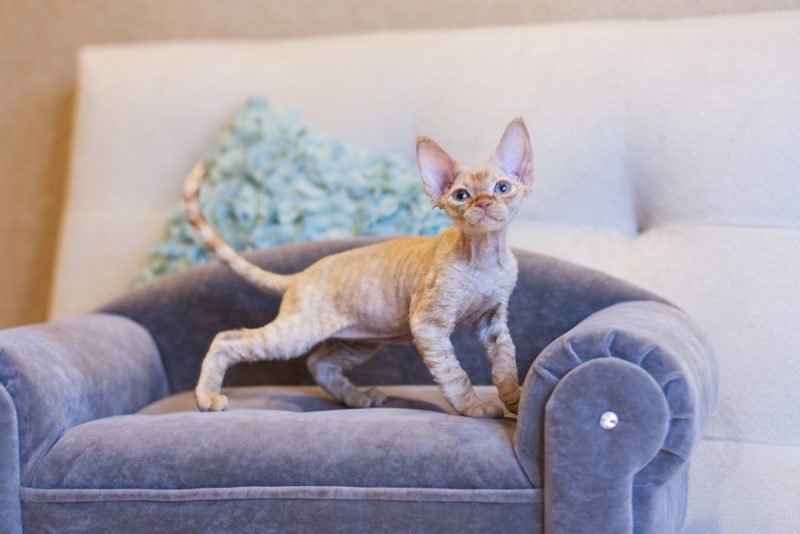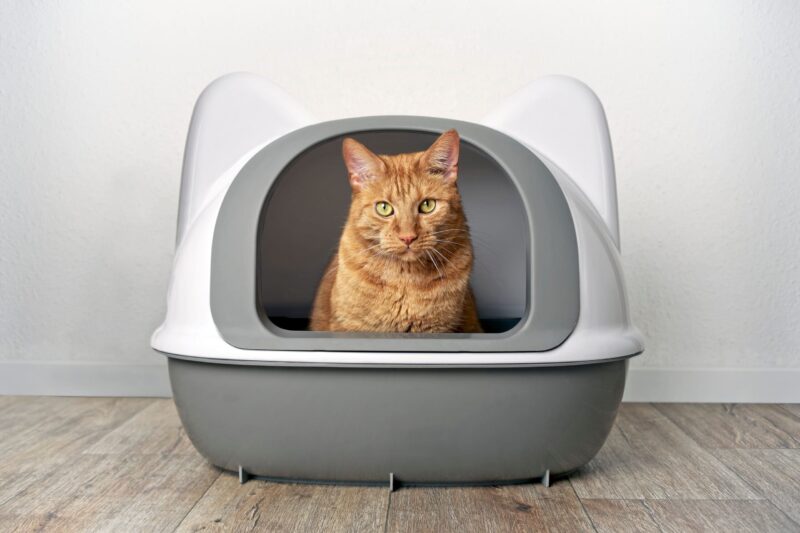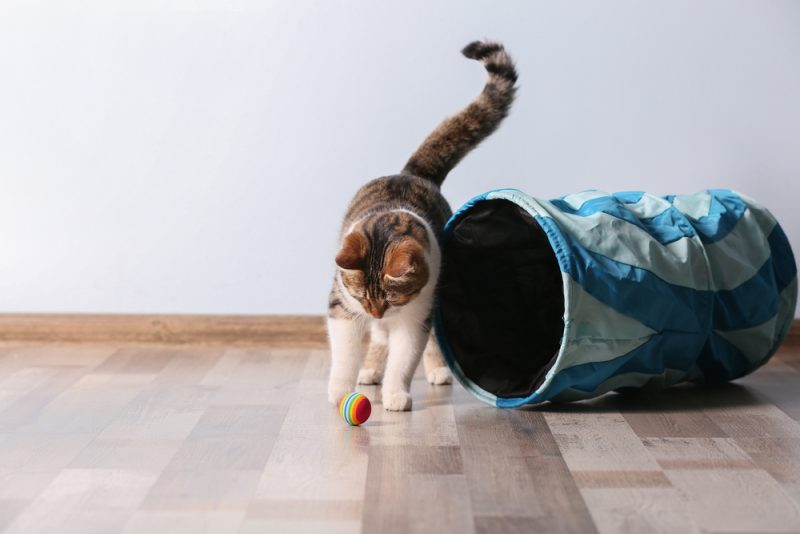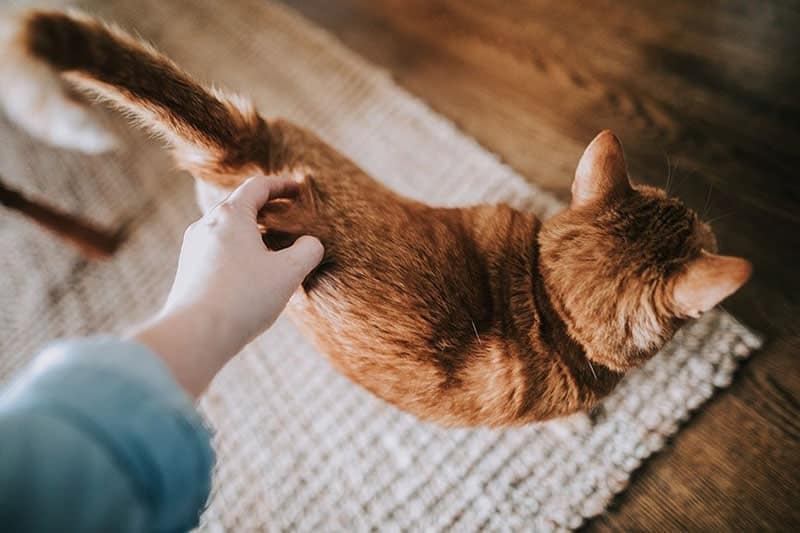Cat owners all over the world are familiar with that awful feeling of stepping barefoot on small litter pebbles, which is usually followed by an explosive, “Why?!”
Cats kicking litter out of their box is a behavior that flummoxes many pet owners, but this may just be an indication that there’s an easy problem that you need to remedy, or maybe that your kitty is getting used to the litter. We rounded up the top reasons that cats kick their litter and a few ways that you can remedy this issue.

The 5 Reasons Cats Kick Litter Out of the Box
1. The Litter Box Is Too Small
Our modern-day cats are the descendants of wild cats that lived in sandy environments in which they would dig a spot, eliminate it, and then cover it again. Many cats still exhibit this behavior in their litter boxes when they dig for the perfect spot to eliminate. If your cat is a digger, a larger litter box will likely help prevent them from kicking litter out when they go through their elimination ritual. The new box should be large enough for your cat to stretch out its forearms to dig, create a hole for elimination, and then cover it.
2. They Are Testing the Litter
Some cats are very particular about their litter, and they will test it out to make sure it is the right spot to eliminate by checking the texture and depth of the litter in the box. This “professional” test may result in some wayward litter making its way outside the box. Always make sure that there is enough litter in the box and that you clean it every day so the litter is pristine for your picky “litter tester,” which will cut down on the kicking behaviors.
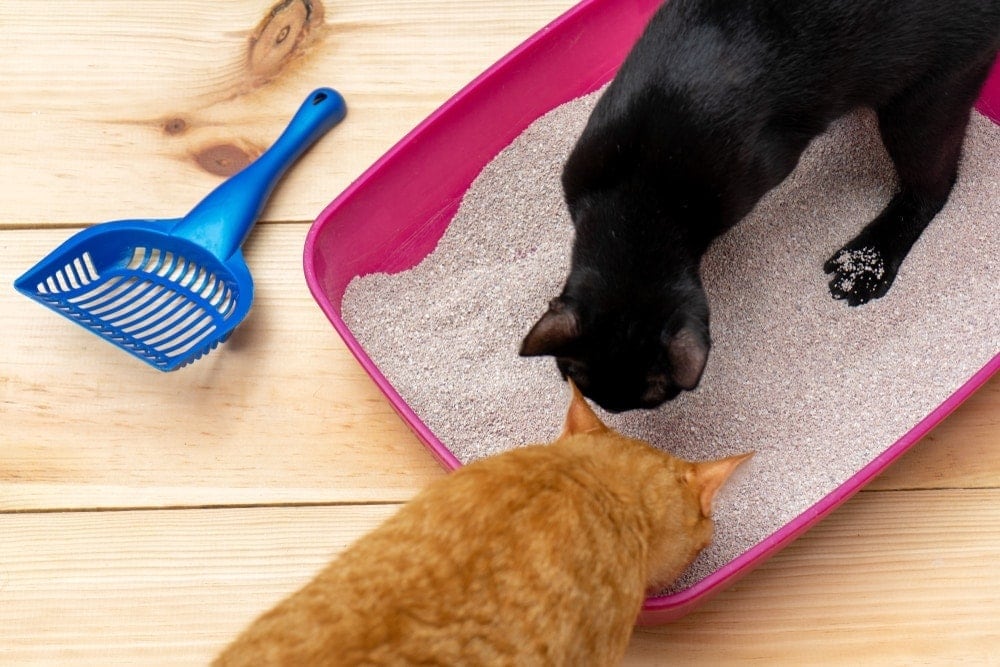
3. Your Cat May Have a Urinary Issue
If your cat is persistently kicking litter out of the box, it may be a sign of discomfort when urinating. Medical problems such as urinary tract infections, cystitis (bladder inflammation), or even kidney disease can cause cats to spend more time in the litter box, scratch excessively, or behave differently around elimination. If you notice this behavior alongside other signs like frequent trips to the box, straining, or accidents outside the box, it’s important to schedule a veterinary check-up.
A covered litter box may reduce the mess, but the priority should be ruling out health problems first.
4. There’s Not Enough Litter
Cats are very particular about their bathroom habits, and one common issue is simply not having enough litter in the box. If the layer is too shallow, they may dig more vigorously and end up kicking litter over the sides. Adding more litter gives your cat enough depth to dig, bury, and cover comfortably, which can help minimize the scatter.
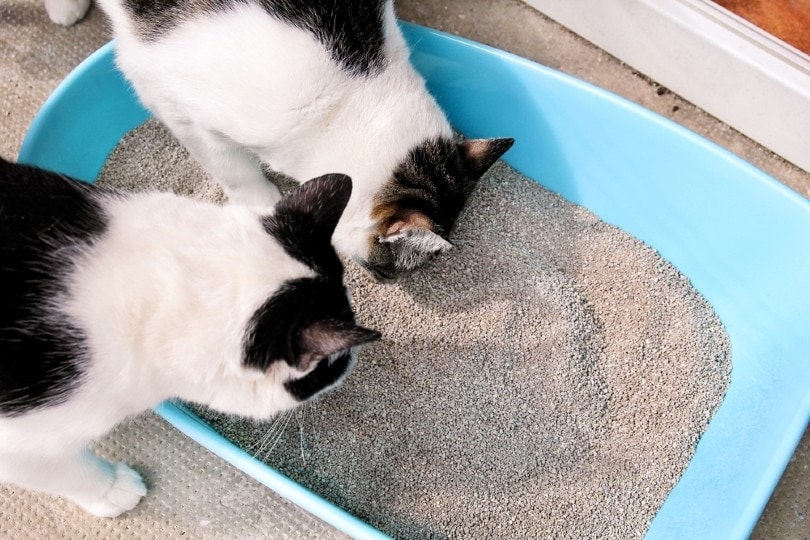
5. Kittens Just Like to Play in the Litter
Kittens often learn their litter box behavior from their mothers. So, if your kitten can observe their mother neatly digging a hole, eliminating, and then covering the droppings, then you’re all set. Many kittens are taken from their mothers at an age too young for them to observe this behavior, though, so they have to figure out how to use the litter box on their own. While they’re doing this, they often play in the litter, which could result in kicking behavior.
A box with higher sides might help reduce litter kicking, but it will be hard to re-train your cat not to kick litter out once they’ve started this behavior. If a high-sided box doesn’t work, try getting a covered litter box so there is no way for them to kick the litter out in the first place.

Conclusion
While cats have pristine bathroom habits, there might be occasions in which some litter gets outside the box. There are several reasons that cats kick litter, including that there isn’t enough litter, they’re testing it out to find the perfect spot to go, or the litter box is too small.
There are simple solutions to many of these problems, which include larger litter boxes, more litter, covered boxes, higher-sided boxes, or re-training. If none of these suggestions work, you may want to talk to your vet to determine if there is a medical reason (such as a urinary issue) for the litter-kicking behavior.
If you need to speak with a vet but can't get to one, head over to PangoVet. It's an online service where you can talk to a vet online and get the advice you need for your pet — all at an affordable price!

Featured Image Credit By: jamesjoong, Shutterstock





